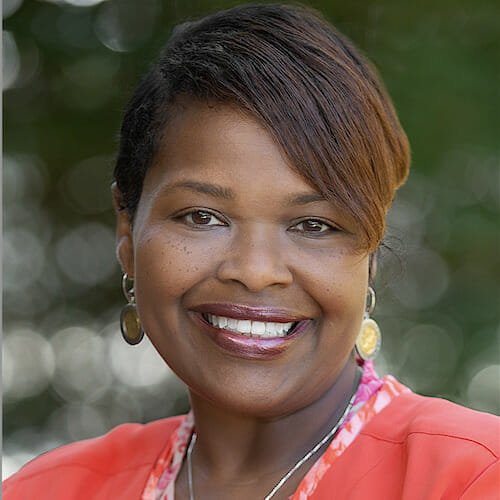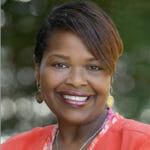
…Just like moons and like suns,
With the certainty of tides,
Just like hopes springing high,
Still I’ll rise. – Maya Angelou
Black History Month, February, often is a time for reflection about Martin Luther King Jr., Rosa Parks, Frederick Douglass and other famous heroes throughout history. As an African American woman, I use this time to reflect on my own family history and to celebrate what my ancestors did to provide for our family.
My paternal grandparents, Jennie Mae and Calvin Renard Wesley, and my maternal grandparents, Booker T. and Jeredener Faulcon, approached providing for our family in varied ways. Their hard work laid the groundwork for me to do what I do today: counsel those in the aging services industry on matters of organizational development and diversity, equity and inclusion, or DEI.
Long before DEI was a trending topic, African American people like my grandparents lived in a world that wasn’t very concerned about equity or inclusion.
My grandparents did not have access to many of the things we take for granted today, such as the ability to pursue higher education or join a workforce where DEI was a consideration.
It was unglamorous labor or nothing for them, and they felt grateful for the opportunity to provide for their family.
As many African Americans who migrated north, my paternal grandparents were part of the great migration from North Carolina to the east. They landed in Baltimore, hoping for a new life. Instead, what was offered were low-paying jobs: working in white people’s homes. The work was basic and provided no room for advancement. There were no paid vacations, staff outings, promotions or even sick days.
My maternal grandfather took the route of entrepreneurship, owning a barber shop and a jewelry store. Still, the generational wealth that would be afforded to an entrepreneur of his caliber went to another jeweler, who came to my grandfather for the precise skill he had of repairing Swiss watches. I still see a billboard for that jeweler each time I drive into Baltimore today. Decades of wealth that, because of the color of my grandfather’s skin color and not because of his skill, went to someone else.
There was, however, “hope springing high,” as Maya Angelou writes in “Still I Rise,” that things would improve. Just like many other African Americans, they saw education as a way for their children’s lives to improve. Both my parents attended Morgan State University, a historically Black college and university in Baltimore, and went on to have careers that enabled me to have the options I have now.
Thinking about the lack of opportunities, it saddens me that most did not consider my grandparents’ intellect or capacity or give them the resources to do more. There was not a path for them to advance higher. Few worried about them experiencing job burnout. The world didn’t focus on those things in the early 1960s.
Thinking of that injustice and the parallel I see that still exists for front line workers drives me just a little harder today.
DEI in health industries today
Many verticals in healthcare need to step up their efforts when it comes to DEI initiatives, including organizations that serve aging adults.
According to a study by the LeadingAge LTSS Center @UMass Boston, there is a pronounced lack of diversity among mid-level managers, senior leaders and board members of organizations that provide long-term services and supports organizations, which includes aging services.
This disparity has existed for many years. For instance, out of the 200 largest nonprofit aging services communities in the country, only three of these organizations have CEOs who are people of color.
Further, aging services has challenges specific to the wide range of ages that are different from what is seen in other areas of society. On one end of the spectrum, we have residents in their 80s and 90s who remember a world where civil rights were not part of the conversation. Their lens into the wider world is just different than someone in their 20s and 30s, who is affected by the fallout from 2020 and the renewed call for racial justice in the wake of George Floyd’s murder.
In that spirit, diversity in aging services does not stop and end with having more people of color in a community’s workforce.
There also is the need to be aware of the way that people from different eras treat each other and how it influences the culture of equity and inclusion in the aging services field.
Every employee — from the nurse, housekeeping staff or food service worker — needs to be treated respectfully by residents. What’s more: these employees need to have the support of management when they are not treated accordingly. This support can come in the form of conversations on diversity and setting expectations with residents. It also can be represented by creating safe spaces for staff members to vent or by holding listening sessions. Finally, this support can be far-reaching, with organization-wide diversity training and counseling.
Change comes from the top
Organizations that serve seniors, like other branches of healthcare or business in this country — can and must do better. For DEI to stick and have a lasting impact, there must be buy-in from leadership, including the integration of more people of color in executive roles.
Some organizations have begun adding positions devoted to DEI in the senior leadership teams. Others are using committees composed of various stakeholders to champion DEI initiatives.
As someone who counsels organizations that support seniors about how to improve DEI, I believe that organizations can look to their values to move toward better inclusion. For organizations that Friends Services Alliance supports, Quaker values intersect Black history and can give inspiration to the future of how they look at diversity.
During the Underground Railroad, the Quaker value of equality or “That of God” in every person spurred those abolitionists to assist enslaved people to their freedom. They also assisted them by helping them learn how to read and do math. Thankfully, those values of exercising fairness continue today.
Still, our industry is much like the rest of society. We have achieved giant leaps since the days when my grandparents did whatever they could do to get by.
The hope my grandparents never had is now germinating. Still, we have a long way to go. And the time to start is now.
Marsha Wesley Coleman is director of learning and development for Friends Services Alliance in Blue Bell, PA.
The opinions expressed in each McKnight’s Senior Living guest column are those of the author and are not necessarily those of McKnight’s Senior Living.
Have a column idea? See our submission guidelines here.


